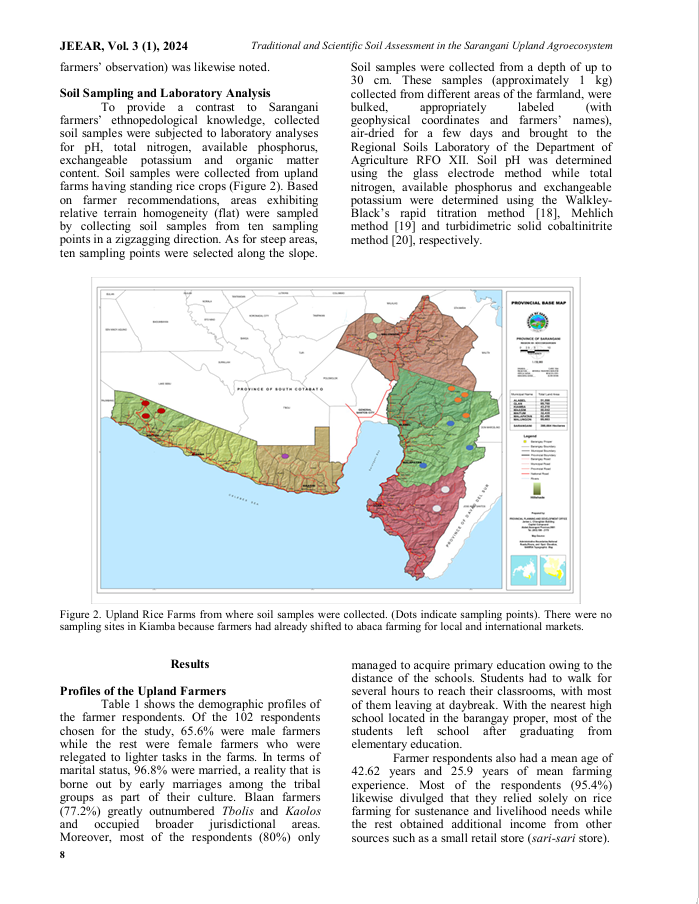Comparing Indigenous Soil Quality Knowledge Systems and Scientific Soil Assessment in a Traditional Upland Rice-based Agroecosystem in Southern Philippines
Abstract
Like traditional agroecosystems worldwide, the Sarangani upland agroecosystem in Southern Philippines is presently under threat from myriad pressures such as environmental destruction, bio-cultural erosion, and agricultural modernization. In these marginal areas, farmland degradation is particularly devastating because of its implications for food security and the long-term survival of ethnic communities. Using a mixed-methods approach, this study revealed a significant linkage between farmers’ soil quality knowledge systems (SQKS) and scientific soil fertility assessments despite their holistic and reductionist natures, respectively. Furthermore, both SQKS and scientific soil knowledge ascribed diminishing soil quality in the Sarangani uplands to unregulated resource extraction, natural calamities, hillside cultivation without soil conservation measures and the inherent vulnerabilities of the upland landscape. These results warrant a closer examination of SQKS and their utilization along with technical soil knowledge systems to craft a comprehensive soil management strategy specifically tailored to the conditions in the Sarangani uplands. Finally, while the study underscored close relationships between local soil assessment and scientific assessment paradigms, more comprehensive studies need to be undertaken before their integration into diverse and complex farming systems such as the Sarangani uplands.

